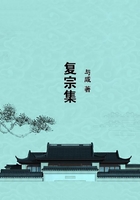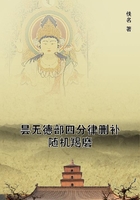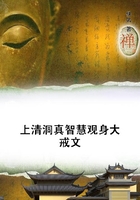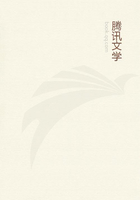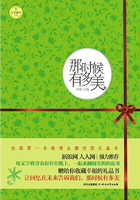To mention a few among them. A plot which has to provide cheese is called Cheeseland.(78*) Those tenements which are singled out for the special duty of carrying the proceeds of the manorial cultivation get the name of averlands.(79*) The terms lodland,(80*) serland (81*) or sharland, are also connected with compulsory labour. The first is taken from the duty to carry loads or possibly to load waggons; the second may be employed in reference to work performed with the sithe or reap-hook. A plot reserved for the leader of the plough-team, the akerman, was naturally called akermanland.(82*) Sometimes, though rarely, the holding gets its name from the money rent it has to pay. We hear of denerates (83*) and nummates (84*) of land in this connexion.
All these variations in detail do not avail to modify to any considerable extent the chief lines on which the medieval system of holdings is constructed. I presume that the foregoing exposition has been sufficient to establish the following points:
--
1. The principle upon which the original distribution depended was that of equalizing the shares of the members of the community. This led to the scattering and to the intermixture of strips. The principle did not preclude inequality according to certain degrees, but it aimed at putting all the people of one degree into approximately similar conditions.
2. The growth of population, of capital, of cultivation, of social inequalities led to a considerable difference between the artificial uniformity in which the arrangement of the holdings was kept and the actual practice of farming and ownership.
3. The system was designed and kept working by the influence of communal right, but it got its artificial shape and its legal rigidity from the manorial administration which used it for the purpose of distributing and collecting labour and rent.
4. The holdings were held together as units, not merely by the superior property of the lord, but by economic considerations. They were breaking up under the pressure of population, not merely in the case of free holdings, but also where the holdings were servile.
NOTES:
1. It should be observed that the word demesne (dominicum) is constantly used in two different senses, (a) the narrower sense in which it stands for the land directly occupied and cultivated by the lord or for his use, and excludes the land held by his villain tenants, and (b) the wider sense ill which it includes these villain tenements. The first meaning is that which the word usually bears in manorial documents, in which the dominicum is contrasted with the villenagium or bondagium. But in legal pleadings and documents which state the doctrine of the common law and the king's courts the villain tenements are part of the lord's demesne, he is seised of them in his demesne (in dominico suo). This discrepancy between what I may call the manorial and the legal uses of the term deserves notice as an indication of the imperfect adjustment of law to fact. I shall use the term in its narrower sense.
2. Eynsham Cartulary, MSS. of Christ Church, Oxford, N. 27, f 1, a: 'Est una cultura nuncupata Shyppelond, et continet in toto septem acras dimidiam acram et dimidiam rodam, et valet acra 4d., et bis successive seminatur.' Inqu. p. mortem 20 Henry III, N. 14(Record Office): 'Extensio manerii de Remdun (Lincoln). Sunt ibidem 360 acre terre et faciunt duas carucatas. Et seminata sunt per annum 240 acre... De waracto per annum 12 d.'
3. Glastonbury Survey of 1189 (Roxburghe Ser.), 99: 'Idem tenet de dominico tres acras a tempore Henrici episcopi quas colit in uno anno et altero noll.'
4. Eynsham Cart., I, a: 'Est ibidem prope alia cultura nuncupata Clayfurlong et continet cum capitali inferiore octo acras unam rodam tres perticas cum dimidia, et potest ter seminari successive, videlicet post warectum ordium, anno sequente cum grosso pulstro et anno tercio cum frumento, et valet acra 8 d....
(Alia cultura) et potest ter seminari ut supra mutato grosso pulstro in pisas.'
5. Two husbandry treatises were chiefly in use in mediaeval England. The fourteenth-century MS., Merton College 91, contains both, and both mention the two systems. (Modus qualiter balliui et prepositi debent onerari super compotum reddendum et qualiter manerium custodiri), f 152: 'E la vu les chaumps sunt semez e parti en deus, le iuernage e le trameys sunt tous semez en un champ.' -- (Maior husbonderia, otherwise Walter of Henley's treatise), f 155: 'Si les terres seent partiz en iii, la ulle partie en le yuernage, lautre partie en le quaremel, e la tierce partie a warect, donqes est la charrue de terre de xxx acres, (sic, corr. ixxx)., E si vos terres seent partez en ii, com sont en plusurs pays, la une partie a yuernage e a quaremel, e lautre partie a waret, donqes serra la charue de terre de viiixx acres.'
Cf. Thorold Rogers, Six Centuries, 75.
6. Fleta, ii. 72.
7. Malmesbury Cart. (Rolls Ser.), ii. 186: 'De terris inbladandis et inhoc faclendis in campis de Brokeneberewe et de Burestone, a ponte de Julebrocke usque ad Halbrigge de Bremelham, ubi dictus Ricardus dicebat se habere communam, ita quod nec abbas et conventus, nec eorum tenentes possint inhoc facere sine consensu dicti Ricardi, nec pro voluntate sua terras suas ibidem inbladare... Abbas et conventus concesserunt praedicto Ricardo...
ut cum terrae prenominatae inbladatae fuerint et blada a terris amota, liberam et plenam communam in praefatis terris una cum abbate et suis hominibus (habeat) sicut ipse vel praedecessores sui unquam melius et plenius habere consueverunt.... Ita quod si de campo predicto in quo factum est inhoc pars quaedam remaneat inculta sine blado, in eadem parte habebunt predictus Ricardus et heredes sui communam cum abbate et conventu et suis. Similiter si villani praedicti Ricardi nolint inhokare terras suas infra praedictum inhoc sitas, habebunt liberum ingressum et egressum ad warectandum eas.'

